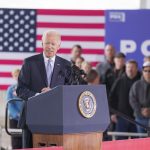In a controversial move, the Federal Trade Commission (FTC) voted 3-2 to ban employers from using non-compete agreements, which prevent workers from taking jobs with competing companies. This decision impacts millions of workers across the country. The ruling will prohibit new non-compete agreements and require companies to inform employees that existing agreements will not be enforced, except for senior executives.
The FTC’s decision has sparked backlash from pro-business groups, such as the United States Chamber of Commerce, who argue that non-compete agreements are essential for protecting intellectual property and trade secrets. They believe the FTC is overreaching its authority and infringing on businesses’ competitiveness. The Chamber of Commerce plans to challenge the ruling in court, claiming it will harm both employers and the economy.
FTC bans most non-compete clauses, claiming the accounts 'robbed people of their economic liberty' https://t.co/A9f0Y1IF5d pic.twitter.com/ctku4cPCGB
— Daily Mail Online (@MailOnline) April 23, 2024
Some FTC commissioners, including dissenting member Andrew Ferguson, acknowledge the concerns surrounding non-compete agreements but question the FTC’s legal authority to unilaterally eliminate them without congressional approval. They argue that such significant policy changes should be made through legislation, not regulatory measures.
Critics of the ruling view it as part of a broader anti-business agenda pushed by the Biden administration. They argue that restrictions on non-compete agreements could hinder innovation and economic growth. With the upcoming 2024 General Election, the ruling has become a contentious issue, with implications for both employees’ rights and the overall state of the economy.
The decision by the FTC underscores the ongoing debate between Democrats and Republicans on economic policy. Former President Donald Trump and President Biden have contrasting approaches to business regulation, with Trump’s supporters generally favoring a more hands-off approach. The ruling is likely to intensify partisan divisions on the role of government in the economy and labor market.




